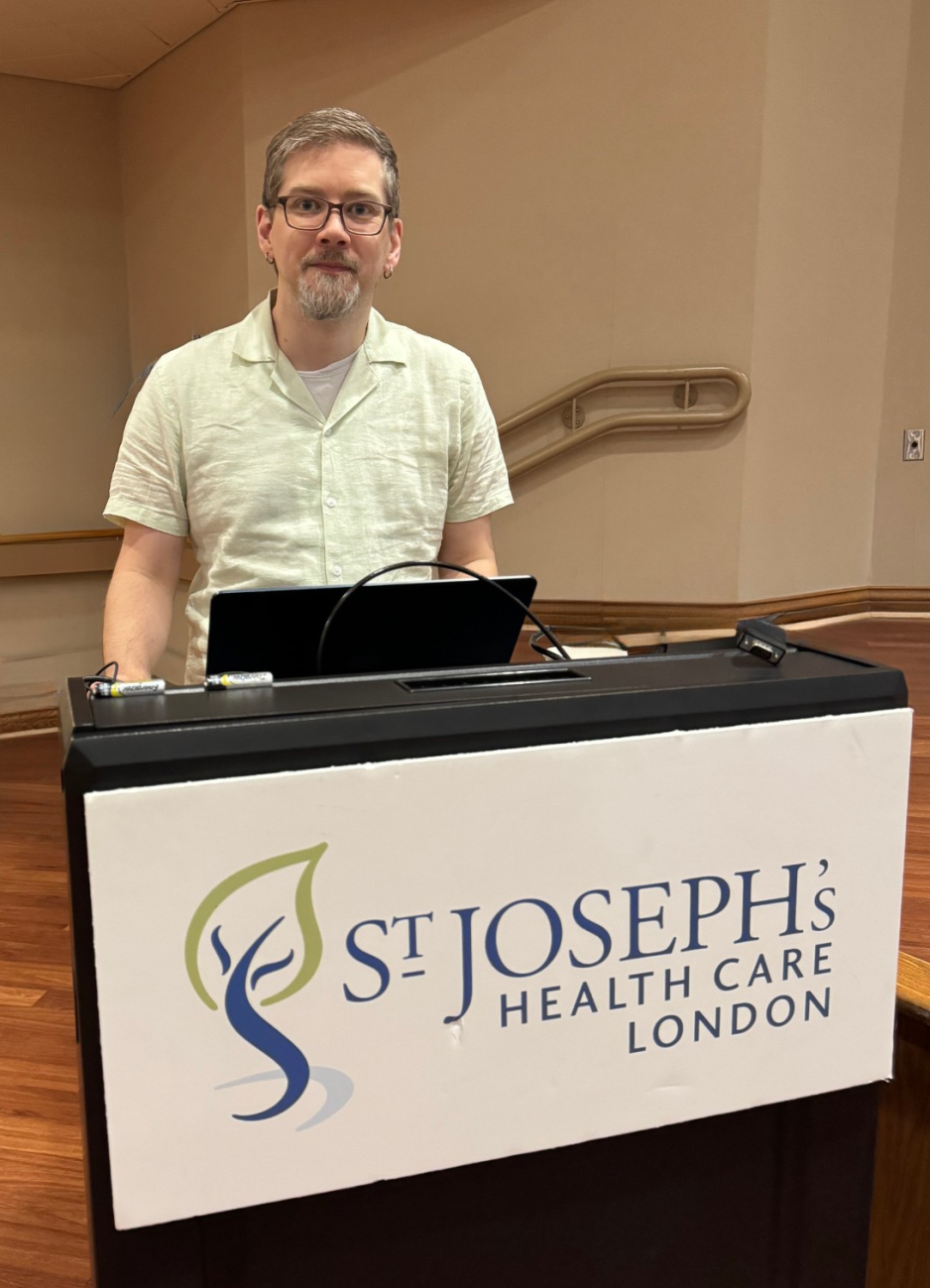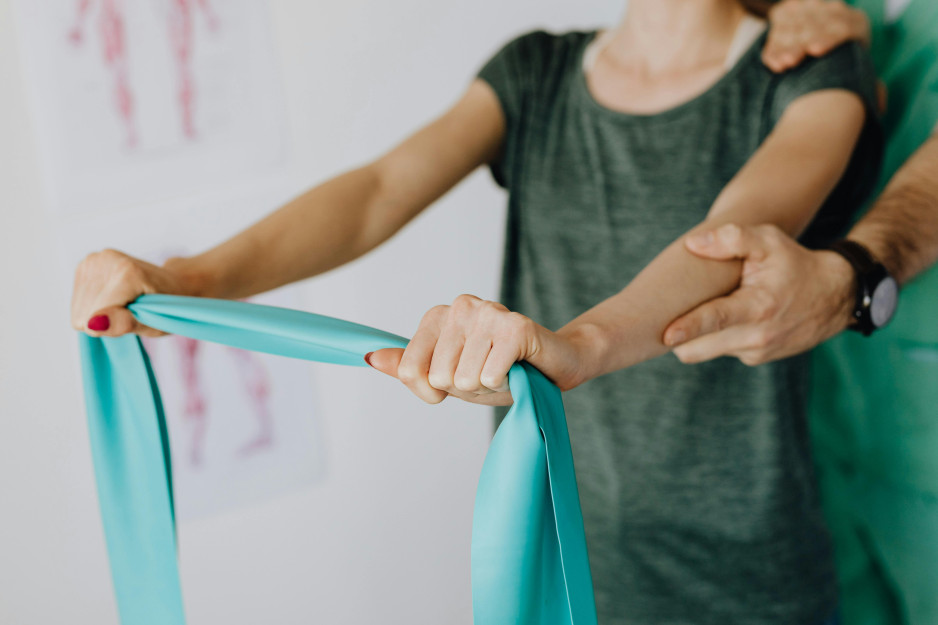Artificial intelligence making strides into rehab
Gray Centre hears of AI’s potential to aid patients, practitioners
Imagine trying to determine and share best practice for physical rehabilitation when each therapist conducts and describes their work with different patients in slightly different ways.
Bringing artificial intelligence (AI) and machine learning to health research and practice is a “transformative shift” that can help close any gaps and ultimately improve patient recovery, participants at a Coffee Lunch hosted by The Gray Centre for Mobility and Activity heard recently during a noon-hour learning session.
AI in general can help explore and describe data, predict outcomes and support better decision-making, says Dan Lizotte, associate professor of computer science and epidemiology and biostatistics at Western University.
“For patient rehabilitation, AI models can interpret past data to find patterns we didn’t know existed, and then build new models for treatment,” Dan told a group of about 45 researchers, scientific staff, clinicians and clinical leaders. health professionals.
The Gray Centre at St. Joseph’s Parkwood Institute is a national leader in developing rehabilitation interventions and treatments through research, teaching and partnership. The group’s weekly Coffee Lunch events are intended to help “unsilo” Parkwood’s research and clinical groups so that they all can benefit from each other’s expertise.
“AI is arguably one of the biggest technological shifts since the internet,” adds Dalton Wolfe, a scientist at Lawson Health Research Institute and leader of the Research 2 Practice (R2P) team based at Parkwood. “We’ve been talking for years about how advanced data collection and analytics can enhance our practice.”
“In health care, it can change our processes and practices, and help develop decision-support and training systems, as well as new ways to generate evidence - all that will enable better research and clinical care. It’s a transformative shift.”
- Dalton Wolfe, a scientist at Lawson Health Research Institute and leader of the Research 2 Practice (R2P) team
For example, Dan is leading the data science team as part of an ongoing R2P study to collect data on physical therapists’ complex descriptions of rehabilitation activities with patients with spinal cord injuries. To start with they have created videos in which 14 therapists describe 16 different activities to capture standard rehab activities and language. The aim is to generate an AI model that can categorize those descriptions and assess which activities are linked with the best outcomes, and then to improve best practices and lead to better patient recovery, he says.
Dan acknowledges the AI technology is growing quickly, and so are the potential applications for rehabilitation research. “Every week, there are new tools we might use, everything from data collection to final analysis.”

